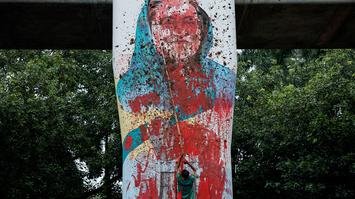On August 15, 2024, a significant development emerged in the realm of international justice as Bangladesh’s International Crimes Tribunal (ICT) announced an investigation into former Prime Minister Sheikh Hasina and nine other individuals. The tribunal’s probe centers on allegations of genocide and crimes against humanity, marking a critical juncture in Bangladesh’s complex history of political and social conflict.
Background
The International Crimes Tribunal was established in Bangladesh in 2009 to address war crimes committed during the 1971 Liberation War, which led to the country’s independence from Pakistan. Over the years, the ICT has prosecuted various individuals for their roles in atrocities committed during the war. However, the recent decision to investigate Sheikh Hasina, the current Prime Minister and a key figure in the country’s politics, represents a dramatic escalation in the tribunal’s scope.
Allegations and Implications
The allegations against Sheikh Hasina and the other nine individuals involve serious accusations of genocide and crimes against humanity. These charges are rooted in claims that the accused were involved in orchestrating or enabling widespread and systematic acts of violence against civilian populations. Such allegations, if proven, would implicate high-level officials in severe breaches of international law and human rights norms.
The implications of this investigation are profound. For Bangladesh, a country that has experienced intense political polarization and conflict, these allegations could deepen existing divides and impact national stability. For the international community, the investigation underscores the ongoing struggle to hold powerful individuals accountable for grave offenses, a process that often encounters significant political and legal hurdles.
Historical Context
To understand the gravity of these allegations, it is essential to consider the historical and political context. Sheikh Hasina has been a prominent figure in Bangladeshi politics for decades, leading the Awami League party and serving multiple terms as Prime Minister. Her tenure has been marked by significant economic development and social reforms but also by accusations of authoritarianism and political repression.
The period under scrutiny involves a complex history of conflict and violence, including the 1971 Liberation War and subsequent political upheavals. The ICT’s mandate focuses on crimes from the 1971 war, but the extension of its investigation to current political figures signals a broader interpretation of accountability.
Legal and Political Challenges
The investigation into a sitting Prime Minister presents numerous legal and political challenges. The ICT, operating under national jurisdiction, faces the task of balancing its judicial mandate with the political realities of prosecuting a prominent leader. The legal process will involve rigorous examination of evidence, testimonies, and potentially, resistance from political and public spheres.
Furthermore, international observers and human rights organizations will likely scrutinize the tribunal’s proceedings to ensure fairness and transparency. The investigation could also impact Bangladesh’s relations with other nations and international bodies, influencing diplomatic and trade interactions.
Conclusion
The decision by Bangladesh’s International Crimes Tribunal to investigate former Prime Minister Sheikh Hasina and nine others for alleged genocide and crimes against humanity marks a pivotal moment in the country’s quest for justice. As the investigation unfolds, it will not only test the tribunal’s capacity to handle high-profile cases but also reflect on Bangladesh’s broader struggle with its historical and political legacies. The outcome of this probe could reshape perceptions of justice in Bangladesh and serve as a significant case study in international criminal law and human rights enforcement.

